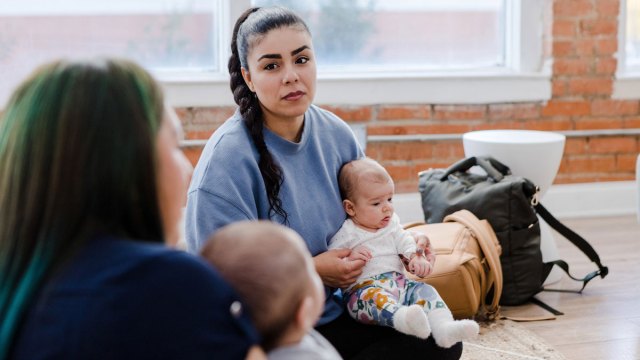When you’ve been friends with someone for so long, you never dream that parenting could be the thing that drives you apart. But sometimes, that’s exactly what happens.
Now, I’m not talking about parenting stereotypes, like crunchy mom versus silky mom or free-range mom versus helicopter mom. I’m referring to deeper parenting styles that fundamentally change how your child develops.
My former best friend and I met in kindergarten, meaning we had known each other for more than three decades. She jumped into her parenting journey a bit earlier than I did, and initially, she was quite helpful and supportive. When I was struggling with breastfeeding and my baby blues turned into postpartum depression, she encouraged me to do what was best for me—and that was to stop nursing. She was a mom who exclusively breastfed her kids for years, so this was monumental. Her words instantly removed the overwhelming social pressure and judgment I felt.
But as my kids grew, I began to notice something: our parenting styles were quite different.
My friend and her husband are more old school. Their word is law, and their kids are expected to do as they say. They are loving and supportive parents, and their beautiful children are thriving. But in their home, you won’t see her kids boldly expressing their feelings or having big explosions. Our home, on the other hand, is a little messier—figuratively speaking (at least in this case).
Our home is loud. My kids are intense. They bicker and let it all out. My husband and I do our best—though we sometimes fail—not to try to change or suppress our kids’ emotions. Sure, they’re still learning how to regulate these big feelings (as am I), but I believe that if they’re allowed to simply experience them, it will serve them well in the long run. Ultimately, they’ll know how to express their emotions in healthy ways rather than hide them—something my generation was brought up to do.
In that way, parenting changed me and really challenged me to do things differently. Wanting your children to grow into the best version of themselves often requires reflecting on who you are and want to be. Instead of fear and punishment, I now strive for connection over correction, which isn’t always the easiest.
Unfortunately, this responsive parenting style drove a wedge between the two of us. When I expressed vulnerability about how difficult it is to watch my child work through big emotions, she had zero patience. Instead, she replied, “Well, I would have told her to stop,” or “You let her ruin your day,” or worse, “She’s always been dramatic.”
Slowly, our relationship turned into me always needing to explain my choices. She questioned why I chose a certain school for my kids, why we didn’t reprimand them more, how we dealt with the pandemic; the list went on and on.
I began to realize that I didn’t need to explain myself to anyone, especially not someone who was supposed to be a friend. She saw my decisions as moral judgments—that her way of parenting must be wrong. In reality, it was just me choosing what I felt was best for my family.
After a while, I had to step away. And if one of your friends is criticizing how you parent, gaslighting you, or simply not supporting your choices at all, perhaps it’s time for you to step away, too. It’s just not healthy. You know what’s best for your child—period. No one needs to have an opinion about that. Reconsider whether your relationship is one that fills your bucket or takes from it. In my case, I already knew the answer.
That didn’t make parting ways any easier. I kept clinging to the past; we had so much history, after all. But because things grew toxic, I knew it was time. If we want to teach our children how to set and maintain boundaries, we must learn to create them for ourselves, too.
And at the end of the day, it’s vital to surround yourself with those who love and accept you for you—parenting style and all.











